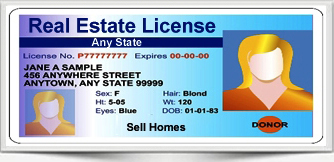Regardless, whether someone is working as a dual representative or a transaction broker, it is frequently the case that the agent will merely take the full commission provided to both sides anyway, which leaves the purchaser and the seller in the very same position. If you choose to deal with the house seller's agent, tread very thoroughly and ask a great deal of concerns.
You are interested in it, and ask your agent to assist you take a more detailed look, and possibly assist you make an offer. The sellers, on the other hand, have actually already agreed with their representative upon two things: how much both the seller's agent and the buyer's representative will be paid. The latter amount is normally published on the local listing service accessible by representatives.


In some cases the total commission is split evenly, and other times one side may be provided basically than the other, depending upon the celebrations' inspirations. For instance, a seller who wishes to add a reward to buyers' representatives to show the property may pay his representative 2. 8% of the sales cost, but offer the purchaser's representative a higher rate, at 3.
Typically, you will see portions in the ballpark of 2. 25% to 3. 5% used to each side. Still, this is always negotiable, and there is never a "standard" rate. If, continuing with the example above, you use to purchase your house for the sticker price amount of $400,000, then, the seller's agent will be paid an $11,200 commission, and your representative will be paid $12,000.
For instance, if the appraiser worked with by your lending institution states that the house deserves $50,000 less than you offered for it, the seller may consent to a cost reduction (though it would be equally possible that you would be asked to come up with a higher down payment to offset the difference in what the lender will consent to owe you).
The smart Trick of How To Choose A Real Estate Agent For Selling That Nobody is Discussing
In either case, the representatives included in the transaction may receive a lower commission as a result (taking a percentage of the last purchase rate). However, another typical circumstance is for house flaws to be handled independently. So, let's state the seller agreed to credit you $5,000 for repairs to the home.
The realty representative's commission is based off of the final selling rate, despite credits, taxes, evaluation costs, and so on. Even though the commission amount for the buyer's agent is determined by the seller, as a buyer you may still have some flexibility in the quantity your representative gets paid.
This is not a typical occurrence, but can and does happen as an approach of correcting specific concerns. Keep in mind that a representative is under no obligation to cut his commission at closing, but it is something that you can talk about if you feel you have a strong reason for the representative to credit you.
A lot of house buyers and sellers work with a real estate agent, and the representative charges a commission. Just how much is the commission, and who pays it? The response in both cases is: the terms are set in the listing agreement the seller indications. Generally the buyer and the seller each have their own representative, and the commission is divided down the middle in between the two agents.
Therefore, if you are a buyer there is no factor you should not be working with a Real estate agent! A genuine estate representative will assist you understand whatever you need to understand about the home purchasing process and save you time and cash. They are there to represent and work out for your interests and to help you discover the right house, the best financing, to guarantee you get the very best terms possible and that your deal closes smoothly and on time.
Fascination About What Is The Average Salary Of A Real Estate Agent
e. commission) is a pre-arranged quantity (typically a percentage of the sales price 6-7%) that the seller has agreed to pay the listing agent for their service at closing and under the terms listed in the listing contract - how to become a http://edgarkgft332.huicopper.com/a-biased-view-of-what-is-rvm-in-real-estate real estate agent in pa. The listing broker then provides part of the commission normally 3% to the agent who represents the purchaser.
Therefore it is actually the seller's representative that pays the purchaser broker and again purchasers do not pay commissions. (the very same chooses new homes/ new building and construction and if the buyer isn't represented by a purchasers representative, the contractor will not minimize the cost of the home and rather they will merely roll these additional profits into their marketing of their other properties this makes good sense as property representatives are the primary source of buyers for contractors and it's not in their benefit to estrange this group.) Two essential points about commissions: The costs aren't included to the home's purchase rate.
The seller pays the commission, and the seller of a home noted with a realty representative agrees to pay this commission when they sign the listing arrangement and prior to the agent marketing the home. Every representative must work for a broker; they can't act separately and are not paid directly.
Brokers set the commission they charge for homes sold through their brokerage. Traditionally, the commission is 6-7% of the list prices, but again, that amount is negotiable. Brokers keep a part of that fee. The representative's share, called the commission split, could be as low as 30 percent of the commission for brand-new agents or as much as 75% (or more) for veteran or highly effective agents.
Throughout that duration, the contract typically states that the seller's broker (also referred to as the listing broker) will get the full commission if an agreement for the sale of your house is signed, no matter the circumstances of the sale. The justification for this is that the listing agent's brokerage hangs out and cash advertising, noting the residential or commercial property, preparing your home for revealing and otherwise promoting the sale.
The 7-Second Trick For How Much Can A Real Estate Agent Make
Typical practice is that the seller's broker shares the commission with the purchaser's broker, but it's not always an equal split. For instance, a seller might concur to pay 7% overall commission, to be divided as 4% to the listing broker and 3% to the selling broker. There are no guidelines on the split.
Property owner ask representative Mike of ABC Brokerage to offer their house for $200,000. They concur on a 7% commission. Steve, a purchaser's agent at XYZ Brokerage, brings his customers to see your house. They concur to acquire the home for $196,000. The total commission will be $13,720, taken out of the list prices at the closing.
The brokerages have consented to divide the commission with 4% going to the listing representative and 3 percent to the purchaser's representative, respectively $7,291 to the listing agent and $5,468 to the buyer's agent. Mike, an extremely effective representative for ABC, receives 75% of the brokerage's $7,291 commission, or $5,468 to which $2,430 is directed towards the marketing expenditures he sustained promoting the house.